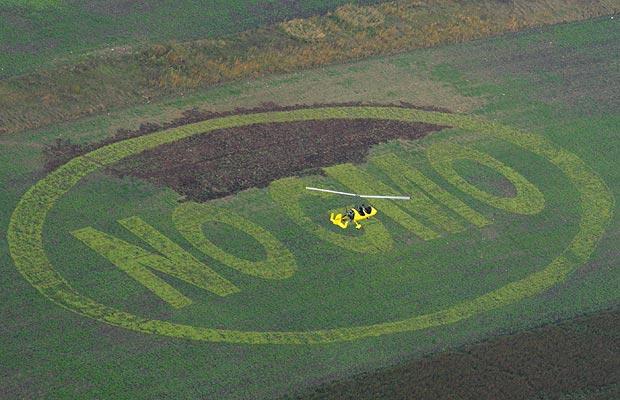The National Organic Coalition (NOC) today sharply condemned recommendations contained in the final report of the Advisory Committee on Biotechnology and 21st Century Agriculture (AC21),a group appointed by the U.S. Department of Agriculture (USDA) to address transgenic contamination of organic and non-genetically engineered (GE) crops. Of particular concern in the report is the recommendation that organic and non-GE conventional farmers pay to self-insure themselves against unwanted GE contamination. NOC strongly asserts that this proposal allows USDA and the agricultural biotechnology industry to abdicate responsibility for preventing GE contamination while making the victim of GE pollution pay for damages resulting from transgenic contamination.

“The AC21 report takes responsibility for GE contamination prevention out of the hands of USDA and the biotech industry where it belongs and puts it squarely on the backs of organic and non-GE farmers,” said Andrew Kimbrell, executive director at Center for Food Safety and a NOC member. “This ill-conceived solution of penalizing the victim is fundamentally unjust and fails to address the root cause of the problem – transgenic contamination.”
In August 2011, USDA convened AC21 and charged it with identifying compensation mechanisms to address GE contamination. The underlying assumption of the committee’s work plan was that as long as farmers are adequately compensated, GE contamination is a permissible and acceptable cost of doing business for organic and non-GE farmers. NOC has rejected this assumption. True to its charge, the committee’s final report failed to make a single recommendation holding the patent holders of genetic engineering technologies responsible and liable for damages caused by its use.
“This is the completely the wrong approach to tackling the GE contamination problem,” said, Liana Hoodes, NOC’s executive director. “At the bare minimum, USDA must prevent GE contamination by mandating pollution prevention measures and by making transgenic polluters, including GE technology owners, pay for their contamination.”
Currently, there is no established scientific evidence that demonstrates contamination can be prevented when farmers use GE technology in open air agriculture. Yet, scientific research has shown GE crops cannot be recalled once released into the environment, as they continue to reproduce on land where seeds are sown or blown, and where plants are pollinated. In wild nature, GE varieties can also reproduce and cause permanent changes to wild relatives, native plants and ecosystems.
Additionally, contamination from GE crops can cause both economic and social harms to farmers in the form of lost livelihood and reputation, and by compromising long-established partnerships and markets in the U.S. and elsewhere. Contamination can severely curtail or eliminate the rights of farmers to sow the crop of their choice and to practice their preferred method of farming. It can also limit a farmer’s ability to collect and preserve non-GE, identity preserved and organic seeds.
According to NOC, an additional shortcoming of the report is the recommendation that GE and non-GE farmer neighbors develop “co-existence agreements” as a means of moderating relationships in light of inevitable contamination. However, “co-existence” indicates some form of equality or a level playing in the situation. This is not the case. It is clear that organic and non-GE farmers are the clear losers under these conditions, as GE contamination precludes them from growing the crops of their choice. Moreover, the recommendation ignores the real-life issues farmers face, including absentee landowners, unwilling or uninformed neighbors, and the power and money backing biotech growers.
“Floating the pie in the sky idea of farmer co-existence agreements is an obvious diversion from the critical issues non-GE farmers routinely confront with respect to GE contamination,” said Ed Maltby, executive director of Northeast Organic Dairy Producers Alliance and NOC member. “We urgently need meaningful regulatory change that institutionalizes mandatory GE contamination prevention practices. USDA needs to stop dragging its heels, get serious and focus on making this happen.”


















